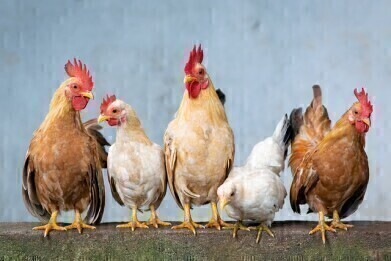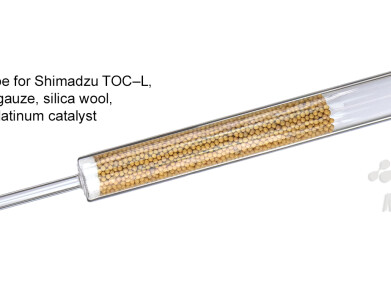Laboratory Products
What's Happened to the UK's Zoonotic Research Site?
Dec 01 2022
From COVID-19 and Ebola to Avian Influenza, zoonotic diseases that leap between animals and humans can have devastating consequences. In the UK, the Animal Plant and Health Agency (APHA) Laboratory in Weybridge plays a critical role in preventing zoonotic diseases from entering the country, as well as managing outbreaks. Despite its national importance, MPs warn the facility has been neglected and allowed to “deteriorate to an alarming extent.”
APHA Lab “comprehensively failed”
In a recent report published by the Public Affairs Committee, the authors maintain the Weybridge facility has suffered from “inadequate management and under-investment”. The Department for Environment, Food & Rural Affairs (DEFRA) agrees and admits it has “comprehensively failed in its historical management” and needs to action immediate changes.
Without an efficiently run facility, the report warns the government is risking the health of the general public, as well as the national agriculture economy. For example, following an outbreak of avian flu, farmers in the UK and EU have been forced to cull almost 50 million birds.
“After the 2001 disaster of foot and mouth disease, the past decades have brought one animal-sourced disease after another,” says British MP, Dame Meg Hillier. “It is shocking that government has allowed UK capacity in this area to deteriorate so alarmingly over that same period,” she adds. “These diseases are devastating for our food production systems, the economy and, when they jump the species barrier to humans as Covid-19 did, to our whole society.”
Experts warn more outbreaks to come
Paul Wigley, a Professor of Avian Infection and Immunity at the University of Liverpool, warns that avian flu poses a major threat to the UK. Without a state-of-the-art facility, the country won’t have the resources to manage further outbreaks.
“Weybridge has always been a central resource of facilities and people,” says Wigley. “It has been placed in a perilous position by underfunding and crumbling facilities. Without support it is increasingly unlikely the UK could cope with another major outbreak of animal or zoonotic disease along with the ongoing avian influenza epidemic.”
Weybridge set for a £200 million revamp
Plans to renovate the site are now underway, with construction due to start in 2027. The upgrades will be funded by a £200 million investment that will equip the lab with the resources to research, fight and manage high-risk zoonotic diseases.
“The UK is a world leader when it comes to science and biosecurity,” says DEFRA Biosecurity Minister, Lord Benyon. “I have seen for myself the remarkable work done by APHA in responding to the recent outbreak of Avian Influenza, and in paving the way for field trials of a cattle vaccine against Bovine Tuberculosis,” he adds. “This investment builds on a long-term programme to future-proof our animal health capabilities, and ensure that we are at the forefront of defence against future pandemics.”
Find out more about the role science plays in the agricultural sector in ‘Accurate Testing keeps Farm Animals Healthy.’
Digital Edition
Lab Asia 31.2 April 2024
April 2024
In This Edition Chromatography Articles - Approaches to troubleshooting an SPE method for the analysis of oligonucleotides (pt i) - High-precision liquid flow processes demand full fluidic c...
View all digital editions
Events
Apr 22 2024 Marrakech, Morroco
Making Pharmaceuticals Exhibition & Conference
Apr 23 2024 Coventry, UK
Apr 23 2024 Kintex, South Korea
Apr 23 2024 Seoul, South Korea
Apr 24 2024 Jakarta, Indonesia

.jpg)











.jpg)




